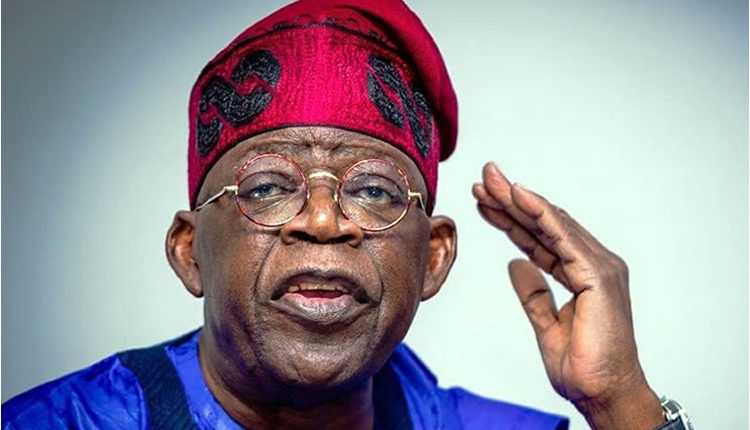The 2027 Presidential Race: Emerging Dynamics and Strategic Calculations
The Nigerian political landscape is abuzz with activity as the 2027 presidential election approaches. The Peoples Democratic Party’s (PDP) decision to zone its presidential ticket to the South has triggered a complex interplay of regional calculations and power dynamics, setting the stage for a potentially fierce contest. With the South-West already occupied by the incumbent President Bola Tinubu, who is seeking re-election under the All Progressives Congress (APC) banner, the focus shifts to the South-South and South-East, as well as the strategies of other major political parties like the African Democratic Congress (ADC) and the Labour Party (LP).
The ADC, a key player in the opposition coalition, has yet to determine its zoning strategy, emphasizing a candidate-centric approach rather than regional considerations. This opens the door for potential contenders like former Vice President Atiku Abubakar and former Anambra State governor Peter Obi, both prominent figures within the opposition alliance. Atiku, having resigned from the PDP, is reportedly eyeing the ADC ticket, while Obi, who ran under the LP banner in 2023, has expressed interest in another presidential bid, potentially with either the LP or even the PDP. The PDP’s zoning decision has sparked discontent in the North, where several influential figures perceive it as a marginalization of their political aspirations. This sentiment underscores the North’s desire to reclaim the presidency after a brief period of Southern leadership. Notable figures like Atiku and Rabiu Kwankwaso of the New Nigeria Peoples Party (NNPP) have emerged as vocal critics of the Tinubu administration, further fueling the North-South political divide.
The 2023 election results offer insights into the potential voting patterns for 2027. Atiku garnered significant support across several northern states, while Kwankwaso’s influence remained largely concentrated in Kano State. Notably, Tinubu secured victories in several northern states despite not hailing from the region, demonstrating the complex interplay of factors beyond regional affiliations. However, analysts predict that the APC might face challenges in mobilizing northern votes in 2027, particularly in the absence of former President Muhammadu Buhari and growing resentment against Tinubu’s administration.
The 2027 election is poised to be heavily influenced by ethnic and regional considerations. Existing political alignments suggest a potential three-way race between Tinubu in the South-West, the PDP candidate in the South-South or South-East, and a northern candidate, possibly Atiku or Kwankwaso. The fragmentation of the southern vote between the APC, PDP, and potentially LP, contrasts with the possibility of a more unified northern voting bloc, presenting both opportunities and challenges for the contenders. The choice of running mates will be a crucial strategic decision for each candidate. In Nigeria’s diverse political landscape, the vice-presidential slot serves as a balancing act, addressing religious, ethnic, and regional interests. A well-chosen running mate can consolidate support from crucial voting blocs, while a misstep could alienate key demographics. For opposition candidates, the selection of a running mate becomes even more critical. Atiku, if he runs, will likely require a Southern Christian with broad appeal to counter narratives of northern dominance, while Obi might look towards the North-West or North-East to expand his support base. Similarly, the PDP would need a northern figure with strong electoral influence to challenge Tinubu’s incumbency advantage.
Political alliances and coalitions are expected to play a decisive role in determining the outcome of the 2027 election. The ability of opposition parties to unite against the incumbent APC will be a key factor. A divided opposition could pave the way for Tinubu’s re-election, while a strong, unified front presents a formidable challenge. Historical precedents highlight the significance of alliances in Nigerian presidential elections, with past victories often attributed to successful cross-regional coalitions. The influence of vote-buying and elite decision-making further complicates the electoral landscape, requiring opposition parties to devise effective strategies to counter these factors.
The APC is actively working to mitigate potential threats from the North, while simultaneously aiming to secure bloc votes from the South. The party is confident in Tinubu’s ability to leverage existing support within the APC’s northern governors as well as appeal to Southern voters through strategic alliances and defections. The APC believes that the South deserves eight years of presidential leadership, emphasizing the need for continued Southern representation at the highest level. The APC’s strategy hinges on maximizing support in the South while securing enough votes in the North to ensure victory.
Contrary to perceptions of a strict North-South divide, some analysts argue that Southern presidential candidates can indeed gain traction in the North. Historical evidence suggests that northern voters are influenced by factors beyond regional identity, including a candidate’s track record, alliances, and ability to address their concerns regarding security, infrastructure, and economic opportunities. Tinubu, with his established political network and incumbency advantage, is positioned to appeal to northern leaders and voters based on his experience and potential to deliver tangible benefits to the region. While public discourse might reflect resentment towards the Tinubu administration, the actual electoral behavior of northern voters can be influenced by a range of factors, making the outcome of the 2027 election far from predictable. The upcoming election promises to be a dynamic and complex contest, with strategic alliances, regional calculations, and individual candidate strengths playing crucial roles in shaping the final outcome.














